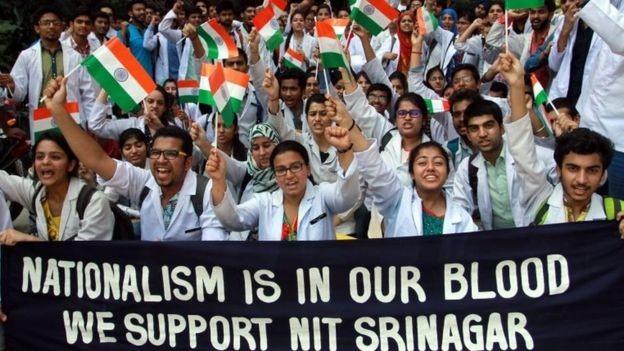Why the death of militant Burhan Wani has Kashmiris up in arms
- Published
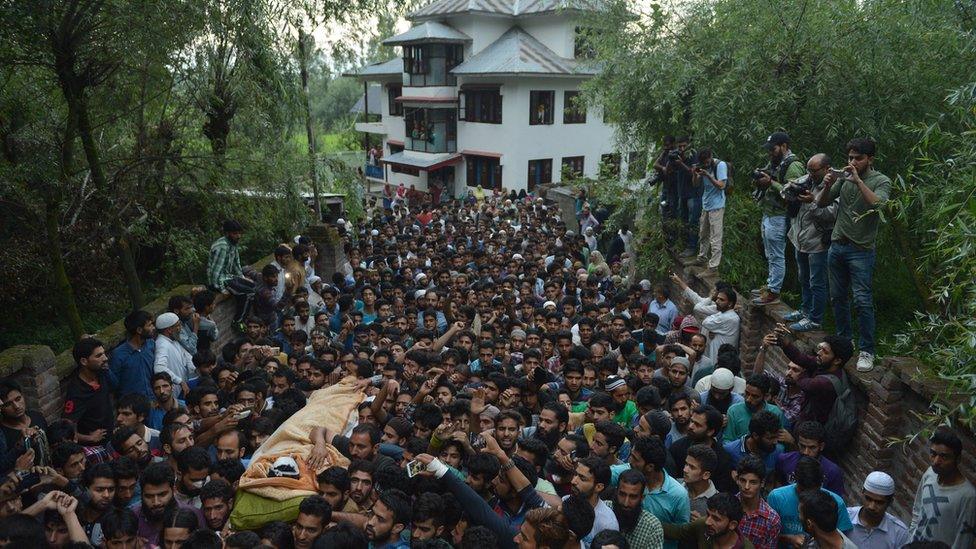
For many Kashmiris Burhan Wani represented the spirit and political aspirations of a new generation
Militant leader Burhan Wani's death in a gun battle with government forces in Indian-administered Kashmir has sparked days of deadly violence. Who was he and why was he so popular, asks local journalist Shujaat Bhukari.
Burhan Wani's funeral was attended by thousands of people, and despite restrictions, the funeral venue was so crowded there was no space to conduct funeral prayers.
Wani, 22, is largely credited with reviving and legitimising the image of militancy in Muslim-majority Indian-administered Kashmir.
The region has seen an armed insurgency against Indian rule since 1989, although violence has waned in recent years.
New age militant
Born to a highly-educated upper-class Kashmiri family, Wani - it is believed - was driven to militancy at the age of 15, after his brother and he were beaten up by police "for no reason".
Wani was extremely active on social media, and unlike militants in the past, did not hide his identity behind a mask.
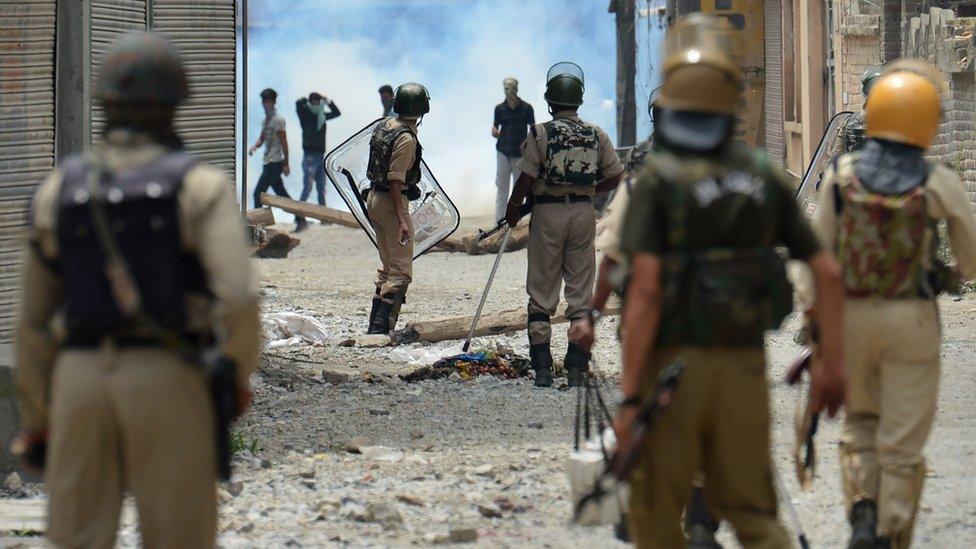
The fresh outbreak of violence led to at least 23 deaths over the weekend
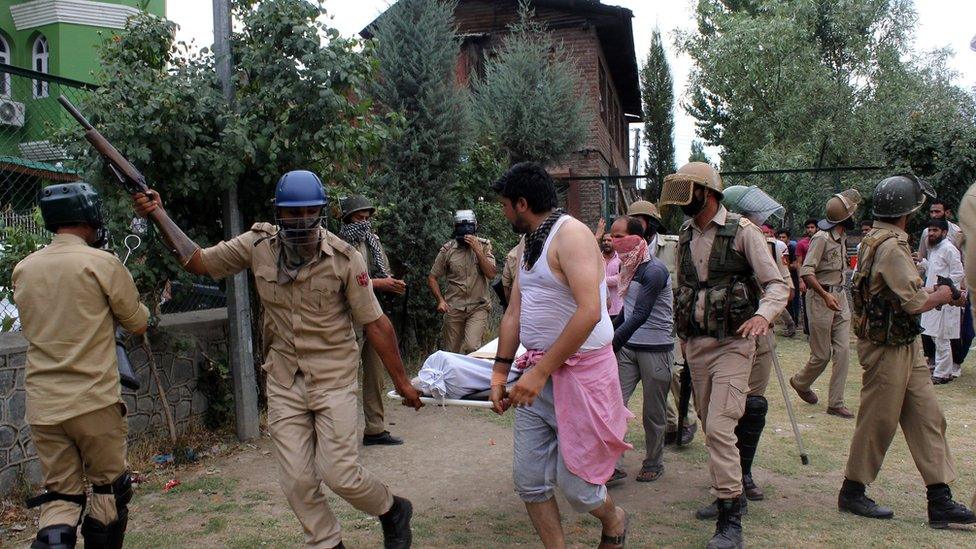
The upsurge of violence is the worst Indian-administered Kashmir has seen for years
His video messages, which would often go viral in Kashmir, were on the topics of Indian injustice and the need for young people to stand up to oppression.
In his last video he had warned local police of "consequences" if they continued to resist the "movement".
India considered Wani a terrorist, but for many locals he represented the spirit and political aspirations of a new Kashmiri generation.
Indian officials have admitted that he was instrumental in persuading local boys to take up arms in the state.
Isolation from India
But Wani's popularity can be considered as more of a manifestation of the current mood and upsurge of violence in Indian-administered Kashmir, which has been influenced by several incidents.
Two popular "uprisings" in 2008 and 2010 saw the death of more than 200 people, many of them civilian protesters, killed by Indian forces. The hanging of Afzal Guru, a Kashmiri separatist convicted over the 2001 Indian parliament attack, also intensified anger and a sense of isolation.
The final straw in recent times, seems to be the decision by the People's Democratic Party (PDP), which won elections in the Muslim-majority Kashmir valley, to form a coalition with India's ruling Hindu nationalist BJP which performed well in the neighbouring Hindu majority region of Jammu.
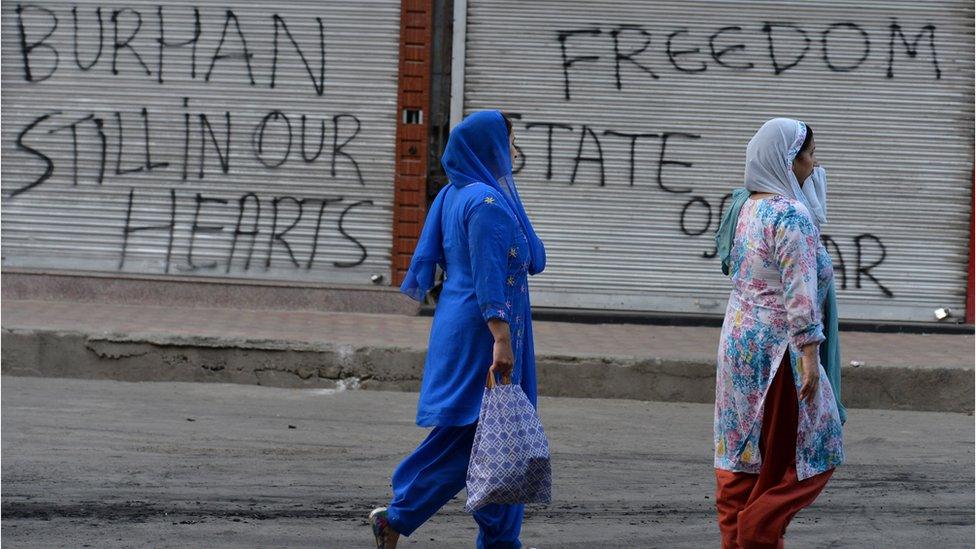
Wani is largely credited with reviving and legitimising the image of militancy in Indian-administered Kashmir
Police records confirm that some of the young men who have recently become militants had actively canvassed for the PDP in the 2014 general elections.
Analysts in the area say that the absence of political engagement to resolve the Kashmir dispute is setting a new political discourse and militancy is gaining legitimacy among people who believe Delhi is ignoring political realities.
The question that is being asked now, is if Wani is more dangerous to India now that he is dead.
The challenge the government now faces is fighting the ideology that Wani promoted, clearly reflected in the outpouring of sentiment over his killing.
Shujaat Bukhari is the editor of Rising Kashmir newspaper, Srinagar
- Published11 July 2016
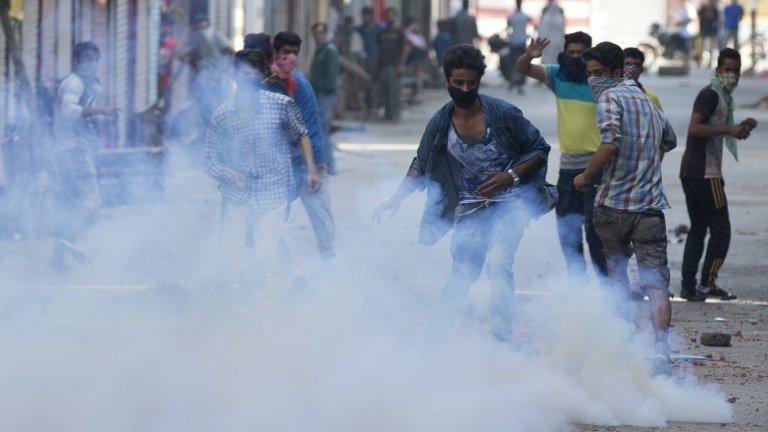
- Published10 July 2016
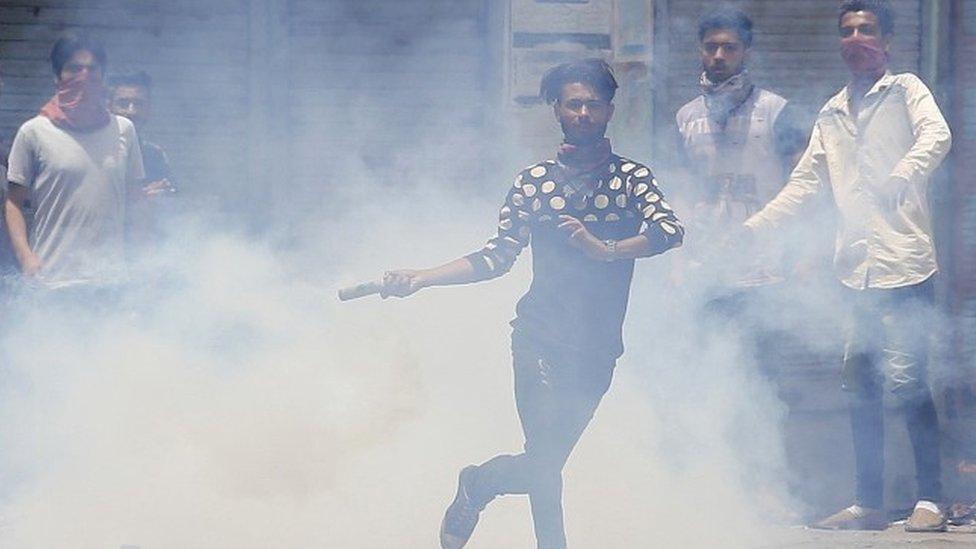
- Published8 April 2016
